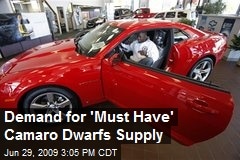“My position on cake is pro-having it, and pro-eating it.” Boris Johnson, colorful British politician
I’m with Boris and Marie on that one — cake for all… who can afford it. And I want to make all the cakes. In short, I’m a born Monopolist. I’ll bet you are too. So, why aren’t we all making cake and money hand over fist, growing fat off cake and profits? Do questions of this ilk keep you up at night, gritting your teeth, wondering where you went wrong? Read on.
Last post introduced the concept of Monopolies. Today’s continues previous discussions of Market Power and Monopoly Pricing. As always, dry definitions and general principles are the necessary starting points, but keep reading as we get to how they apply to audiologists and hearing aid manufacturers.
Market and Monopoly Powers
Monopoly is not the same as Market Power, but they’re related. The US Supreme Court defines and distinguishes them as follows:{{1}}[[1]]Discussion in this section paraphrased from a legal summary available from the US Department of Justice.[[1]]
- Market Power: “The ability to raise prices above those that would be charged in a competitive market.” Market Power is necessary but not sufficient to qualify a firm as possessing Monopoly Power.
- Monopoly Power: “The power to control prices or exclude competition” by possessing a “substantial degree of market power [that is] durable and much more than merely fleeting.” It is a question of “degree rather than one of kind.”
Economically, it remains a balancing act with a different set of rules. Firms with Market Power dictate either Price or Quantity Supplied, but not both, rather than deferring to Demand and Supply. But even that heady freedom is constrained by the market: monopolists can’t produce “beyond” their Demand curves or set Price “under” their costs. It takes a lot of Market Power to be a Monopolist, but Monopoly Power does not yield unlimited Market Power.
Monopoly Forces for Good and Evil
 Firms with Monopoly Power usually set Price above competitive levels (P* as previously discussed). But Monopoly Power isn’t a birthright or entitlement, as Marie Antoinette discovered. It’s a powerful incentive for good or bad behavior, as Anakin Skywalker discovered. Although economics doesn’t lend itself to morality or ethics, its measurement methods constitute important sources of data to determine “good” and “bad” behavior by regulators and litigators.
Firms with Monopoly Power usually set Price above competitive levels (P* as previously discussed). But Monopoly Power isn’t a birthright or entitlement, as Marie Antoinette discovered. It’s a powerful incentive for good or bad behavior, as Anakin Skywalker discovered. Although economics doesn’t lend itself to morality or ethics, its measurement methods constitute important sources of data to determine “good” and “bad” behavior by regulators and litigators.
On the Force of Good side, it’s an incentive for excellence (some may think Apple): firms pour a lot a lot of money and other resources into innovative technologies, producing ever-better products for the market, hence driving economic growth. Many governments acknowledge that it is not illegal to possesses Monopoly Power “where it is the product of superior skill, foresight, or industry.”
On the Force of Evil side, it’s an incentive for vicious bullying (some may think Microsoft): firms that climb to the top or stay there by dint of “anticompetitive conduct” are in violation of antitrust laws.
What This Profession Needs Is a Must Have
You and I don’t get to bake all the cakes and eat them too because we lack Market Power. We’ve talked about this. Without Market Power, we don’t have Monopoly Power so we cannot aspire to Monopolist Pricing. What we need is what we don’t have: a Must Have.
 Must Haves are things consumers and others entities can’t do without. They’ll pay whatever it costs to get them. Our own practice experiences tell us that neither hearing tests nor hearing aids are Must Haves. Those 80% of the people who “need” hearing aids and don’t get them aren’t all foregoing the choice because of cost. Even “free” hearing aids through the VA do not find their way to the ears of all veterans with hearing loss. Face it: everybody wants to eat cake, but not everybody wants to wear a hearing aid. Hearing aids are not cake. They are not a consumer Must Have, at least not yet.
Must Haves are things consumers and others entities can’t do without. They’ll pay whatever it costs to get them. Our own practice experiences tell us that neither hearing tests nor hearing aids are Must Haves. Those 80% of the people who “need” hearing aids and don’t get them aren’t all foregoing the choice because of cost. Even “free” hearing aids through the VA do not find their way to the ears of all veterans with hearing loss. Face it: everybody wants to eat cake, but not everybody wants to wear a hearing aid. Hearing aids are not cake. They are not a consumer Must Have, at least not yet.
How could we make ourselves a Must Have? That’s the question our membership organizations are forever asking themselves. It forms the rationale for all lobbying efforts to restrict services to “qualified” providers, among other barrier notions.
Likewise, IPOs and other forms of merged activities are efforts to re-position us to Must Have status. Mergers bring price negotiating clout but also higher prices for consumers in other areas of healthcare. There’s no reason to think it would be different in hearing healthcare, were we to miraculously become a Must Have. No matter how you slice it, there is not enough cake for everybody.
Our Big 6 Have Market Power
Contrary to the consumer landscape, hearing aids are Must Haves for audiologists and dispensers. We literally cannot live (professionally) without them. The manufacturers know this and charge us accordingly. What we charge patients is a different matter, considering that hearing aids are not Must Haves for any number of consumers with hearing loss. Consumers know this and expect us to charge them accordingly. This is what’s called Price Elasticity, or Price Inelasticity, in Economic-speak. It will be the topic of a future post in this series.
Besides feeding us cake in captivity, our Big 6 hearing aid manufacturers have Market Power and Monopoly Power insofar as superior skill, foresight and industry are concerned. Anti-competitive conduct, to the extent that it exists, is kept under wraps. As expected in such a scenario, Monopoly Pricing is in play and profits are high for manufacturers. That’s economics.
Next week we’ll use Market Power and Monopoly Power views to compare the hip replacement industry with the hearing aid industry in the US markets. Hint: hip manufacturers get to eat more cake than hearing aid manufacturers. Ditto for surgeons versus audiologists.







